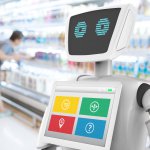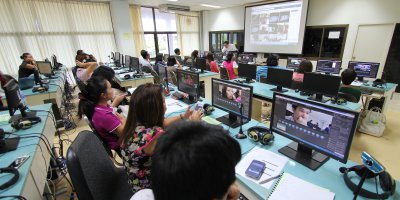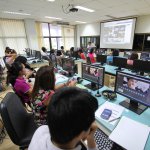
Automation powered by AI systems is increasingly being deployed in business operations to perform repetitive tasks with extraordinary efficiency and minimal error, rendering the human workforce redundant in some cases. Source: Shutterstock
Here’s why deploying AI might not lead to job cuts
ARTIFICIAL intelligence or AI is expected to transform businesses and along with it, tomorrow’s workforce.
Automation powered by AI systems is increasingly being deployed in business operations to perform repetitive tasks with extraordinary efficiency and minimal error.
This outcome feeds into the unsettling notion that AI is a threat to the human workforce and eventually societies will have to deal with the problems of rising unemployment along with the economic ramifications that it bring to a country.
However, according to a new report, only 8 percent of 100 business leaders from the Global 2000 companies surveyed claimed that jobs are being slashed within their organizations after implementing AI. Thirty-four percent of them said that job demand stayed the same independent on AI adoption.
Another 18 percent of them claims AI technology does not in any way impact their company’s workforce at all lending credit to the idea that the job loss concern may have just been due to the lack of understanding of the technology.
Contradicting the idea that AI is a job-killer, 40 percent of the companies surveyed have added more jobs as a result of adopting AI to their operations.
At any rate, AI technology already has a huge presence in enterprises, as the survey also found that the majority of the businesses have deployed AI in some capacity.
One in five company surveyed said they have fully implemented an AI-based system within their operations, while 44 percent of them claim that they within the process of launching an AI project.
Beyond that, the application and adoption of AI-powered solutions are only expected to increase exponentially in the coming years, as the technology becomes more robust and mature.
Meanwhile, about half (46 percent) of the company in the survey is reported to be having issues with AI explainability – how the system arrive at their conclusions. Only about one in three of the company comprehend the AI system’s algorithm.
Anthony Scriffignano, the chief data scientist at Dun & Bradstreet, the company that conducted the survey, said that businesses look to AI to solve complex problems, but since AI models are programmed by humans, the approach often leads to misleading information of the current prevailing ideas.
“This underscores the need to have conversations about diversity of thought and methodology so that the technology can be more valuable to the enterprise,” he said.
Among the most significant challenges that companies face in implementing AI include the lack of expertise and data, according to the survey.
As data serve as a foundation for developing any technology, and even more so the case for AI, Scriffignano said, “If you have a faulty data foundation, you will likely have a faulty technology approach yielding faulty insights.”
“As data continues to be produced and stored in exponentially increasing quantities, we will begin to see AI systems adapt and improve, which is inherent to the value of AI.”
Some of the other hurdles that companies foresee in implementing AI projects are; technology infrastructure limitations, indecisive or hesitation of the leadership as well as budgetary constraints.
About half of the companies surveyed stated they are primarily deploying AI for analytics, automation and data management, while 29 percent of them are using the technology for back-end systems enhancement, and 23 percent adopting consumer-facing AI-chatbots.
Of course, given the rapid pace of AI development and the results it delivers, the fear of job-loss among human workforce is completely justified.
But, AI-powered solution are to be used in tandem with humans who are now free to focus on tasks that requires cognitive functions and creativity, instead of being being bogged down repetitive routines.
As a result, productivity will be at all times high, leading towards more job creations and high skilled employements.
READ MORE
- Ethical AI: The renewed importance of safeguarding data and customer privacy in Generative AI applications
- How Japan balances AI-driven opportunities with cybersecurity needs
- Deploying SASE: Benchmarking your approach
- Insurance everywhere all at once: the digital transformation of the APAC insurance industry
- Google parent Alphabet eyes HubSpot: A potential acquisition shaping the future of CRM






